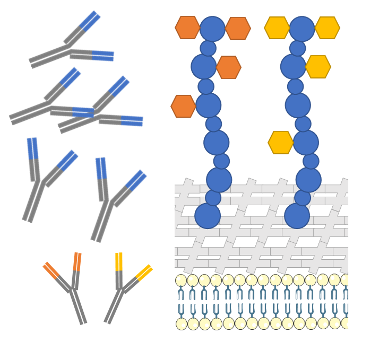Complex bacterial sugars as novel vaccine targets
This project aims for proof-of-concept that conserved cell wall polysaccharides can be used as targets for broadly protective glycoconjugate vaccines against the bacterial species Streptococcus suis and Staphylococcus aureus, important zoonotic pathogens in pigs and cattle, respectively. This collaboration brings together experts on immunology and One Health from the Faculty of Veterinary Medicine of Utrecht University and on glycobiology and bacterial evolution from the Amsterdam University Medical Center with MSD Animal Health, a global leader in the development of veterinary vaccines.
Gram-positive bacteria have a large impact on human and animal health. Especially the genera Streptococcus and Staphylococcus comprise a large number of bacteria that cause disease in humans and animals. Many Gram-positive bacteria display capsular polysaccharide serotype variation that supports pathogen escape from the immune system. The use of capsular polysaccharides in traditional capsule-glycoconjugate vaccines often suffer from lack of complete serotype coverage, leading to a shift in serotypes that cause disease. Overall, there is a lack of (broadly protective) vaccines, while antibiotic treatment is either discouraged or less effective due to antimicrobial resistance.
Cell wall polysaccharide-antigens often show limited variation across serotypes. Their application as vaccine antigens would therefore overcome the hurdle of narrow serotype specificity of traditional glycoconjugate vaccines, potentially opening up new vaccine options for a wide range of disease-causing bacteria. Successful execution of this project will help reduce animal infections, support healthy farming and indirectly reduce zoonotic and emerging infections in humans.
The genetics and glycobiology of cell wall polysaccharides of major S. suis and S. aureus strains will be studied to identify potential conserved polysaccharide vaccine antigens. The immunogenicity of these antigens will be tested following infection and immunisation and the function of antibodies against these antigens will be analysed in vitro. The efficacy of promising vaccine antigen candidates may be tested in vivo in a proof-of-principle vaccination study.




